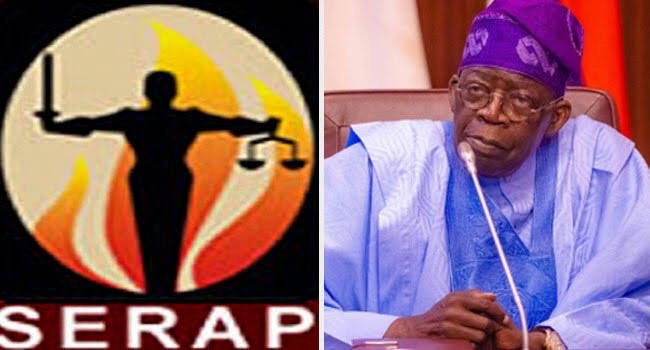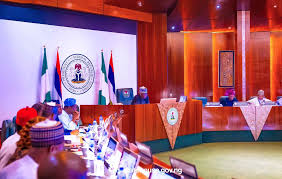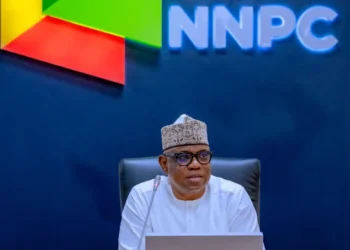By: Nwakaji Peace Martins
Socio-Economic Rights and Accountability Project (SERAP) has called upon President Bola Tinubu to take advantage of the anniversary of his first year in office as an opportunity to showcase his frequently expressed dedication to democracy, accountability, and transparency in governance by promptly disclosing his asset declaration document.
SERAP urged him to prompt his Vice-President Kashim Shettima, ministers, and state governors to also broadly disclose their asset declaration documents.
SERAP also urged him to expeditiously propose a constitutional amendment to include clauses for the establishment of an asset declaration database to disclose government officials’ asset declaration documents before, during, and after their tenure in public office.
In the correspondence dated 25 May 2024 and signed by SERAP deputy director Kolawole Oluwadare, the organization stated: “Broadly disclosing your asset declaration document and urging your Vice-President, ministers, and state governors to also broadly disclose their assets would serve genuine public interests.”
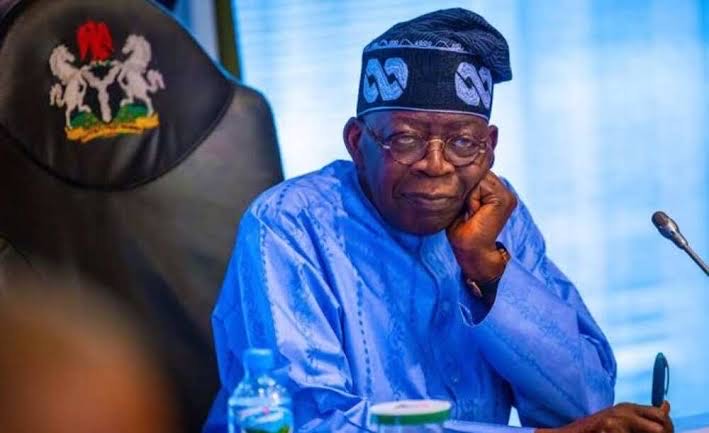
SERAP stated: “Disclosing your asset declaration document and encouraging others to do so would also foster public trust and establish a framework of transparency, accountability, and public involvement.”
According to SERAP, “Transparency and openness in the specifics of asset declaration documents of high-ranking public officials would fortify the country’s democracy and promote accountability at all government levels.”The letter stated: “You pledged in your inaugural address on May 29, 2023 ‘to take proactive measures to deter corruption’, and to ensure that ‘Nigeria is impartially governed in accordance with the constitution and the rule of law’.”
“We urge you to utilize your first anniversary in office as a crucial opportunity to emphasize and reaffirm your frequently stated commitment to democratic governance, transparency, and public accountability by promptly taking tangible actions to implement the proposed suggestions.”
“Transparency in the specifics of asset declaration documents would also enable Nigerians to scrutinize the documents and verify the financial status of public officials and raise concerns about potential conflicts of interest and corruption.”
“Asset declaration documents are of public interest, and your government should take the lead and encourage other high-ranking public officials to utilize new technologies to disclose the specifics of their asset declaration documents online and make them easily accessible to the public.”
“Corruption is one of the greatest obstacles to enhancing the country’s democracy and reconstructing a transparent, accountable, and participatory governance system. A method through which corrupt politicians in the country have perpetuated corrupt practices is by concealing assets.”
“Transparency and openness would also enhance public confidence in the integrity of high-ranking public officials and government in general, and ensure that political authorities are sincere when delivering services to the people.”
“Our appeals are made in the public interest, and in line with the stipulations of the Nigerian Constitution 1999 [as amended]; and Nigeria’s international anti-corruption and human rights commitments.”
“Information regarding the property and financial interests of public officials should be accessible to the public through a dedicated website.”
“Transparency in the specifics of asset declaration documents of high-ranking public officials would also encourage citizens’ engagement in the fight against corruption, which in turn would enhance the transparency of public administration and citizens’ trust in the integrity of state institutions.”
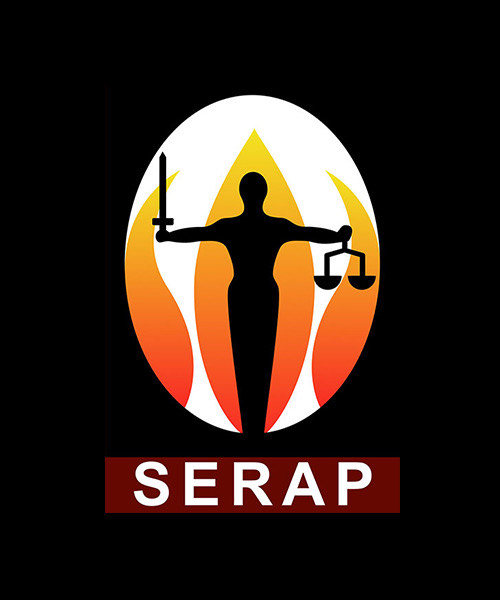
“Those who voluntarily seek or hold public offices and are supported by the public have specific fiduciary obligations to be open, transparent, and accountable to the people regarding the specifics of their asset declaration documents.”
“Because asset declaration documents are public records, public officials cannot contend that disclosing their assets would infringe upon their privacy rights.”
“There is an overriding public interest in the disclosure of information on the assets of public officers who clearly act as trustees of Nigeria’s wealth and resources.”
“Disclosing your asset declaration document and urging your Vice-President, ministers, and state governors to also broadly disclose their asset declaration documents would enable Nigerians to scrutinize the assets and net worth of public officials before assuming office and at the conclusion of their term.”
“Disclosing your asset declaration document and urging your Vice-President, ministers, and state governors to also broadly disclose their asset declaration documents would also convey a strong message of your commitment to uphold the country’s constitutional guarantees and international obligations.”
“According to the Code of Conduct for Public Officers, outlined in Part I of the Fifth Schedule to the 1999 Nigerian Constitution 1999 [as amended], all public officers are required to declare their assets.”
“Paragraph 11(1)(a)(b) of the Fifth Schedule stipulates that every public officer shall promptly after taking office and subsequently (a) at the conclusion of every four years; and (b) at the end of his/her term of office, submit to the Code of Conduct Bureau a written declaration of all his properties, assets, and liabilities and those of his unmarried children under the age of eighteen years.”
“Section 15(1) of the Code of Conduct Bureau (CCB) and Tribunal Act also mandates all public officers to declare their assets.”
“Article 7(1) of the African Union Convention on Preventing and Combating Corruption and Articles 7(4) and 8(5) of the UN Convention against Corruption also contain similar provisions and requirements for public officials to declare their assets before, during, and after serving in public office.”
“The Nigerian Constitution and the anti-corruption and human rights treaties underscore the vital role that asset declaration by public officials plays in promoting transparency, accountability, and preventing and combating corruption in the public sector.”
“Section 109 of the Evidence Act defines a public document to encompass documents constituting the acts or records of the acts of public officers. Asset declaration documents retained by the Code of Conduct Bureau therefore qualify as public documents under section 109.”
“We trust that the highlighted aspects will assist you in taking steps to disclose your asset declaration document and to prompt others to do the same.”


